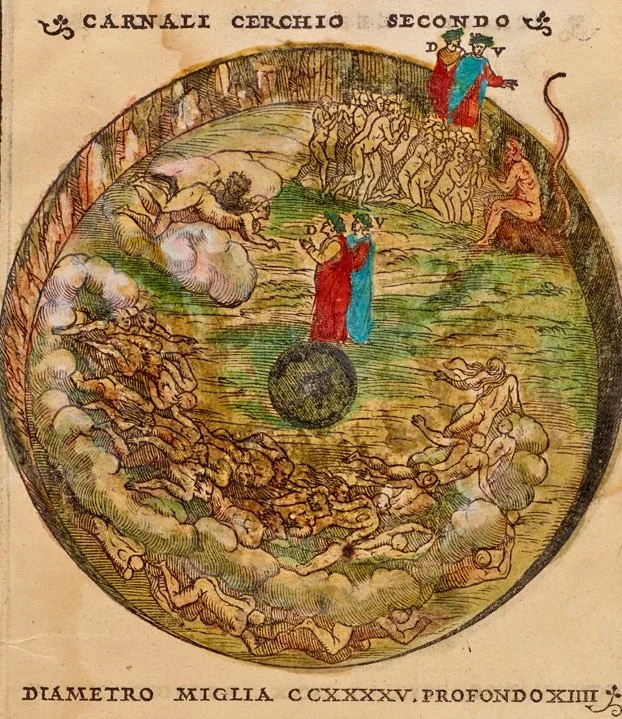Nicomachean Ethics 3.1 is a text of great significance for Dante’s meditation on the will. Aristotle offers two examples of involuntary action in Nicomachean Ethics 3.1; the first surfaces in Inferno 5 and the second in Paradiso 3. In Inferno 5, Dante uses Aristotle’s first example of involuntary action (a wind that carries us off against our will), imposing it onto a context, the pursuit of carnal pleasure, in which the action was not in fact involuntary, but was willfully experienced as such. In Paradiso 3–5, Dante uses Aristotle’s second example of involuntary action (powerful men who carry us off against our will), importing it into a context in which violence occurs, but the victims of violence are nonetheless held to have behaved voluntarily. Dante thus disrupts the Aristotelian analysis, revealing the fault line between Aristotle on voluntary and involuntary action and the Christian doctrine of free will.
On Wednesday, April 9, at 6 PM, join Teodolinda Barolini (Columbia) for a lecture and discussion on Dante, Aristotle, and what it means to act freely.

